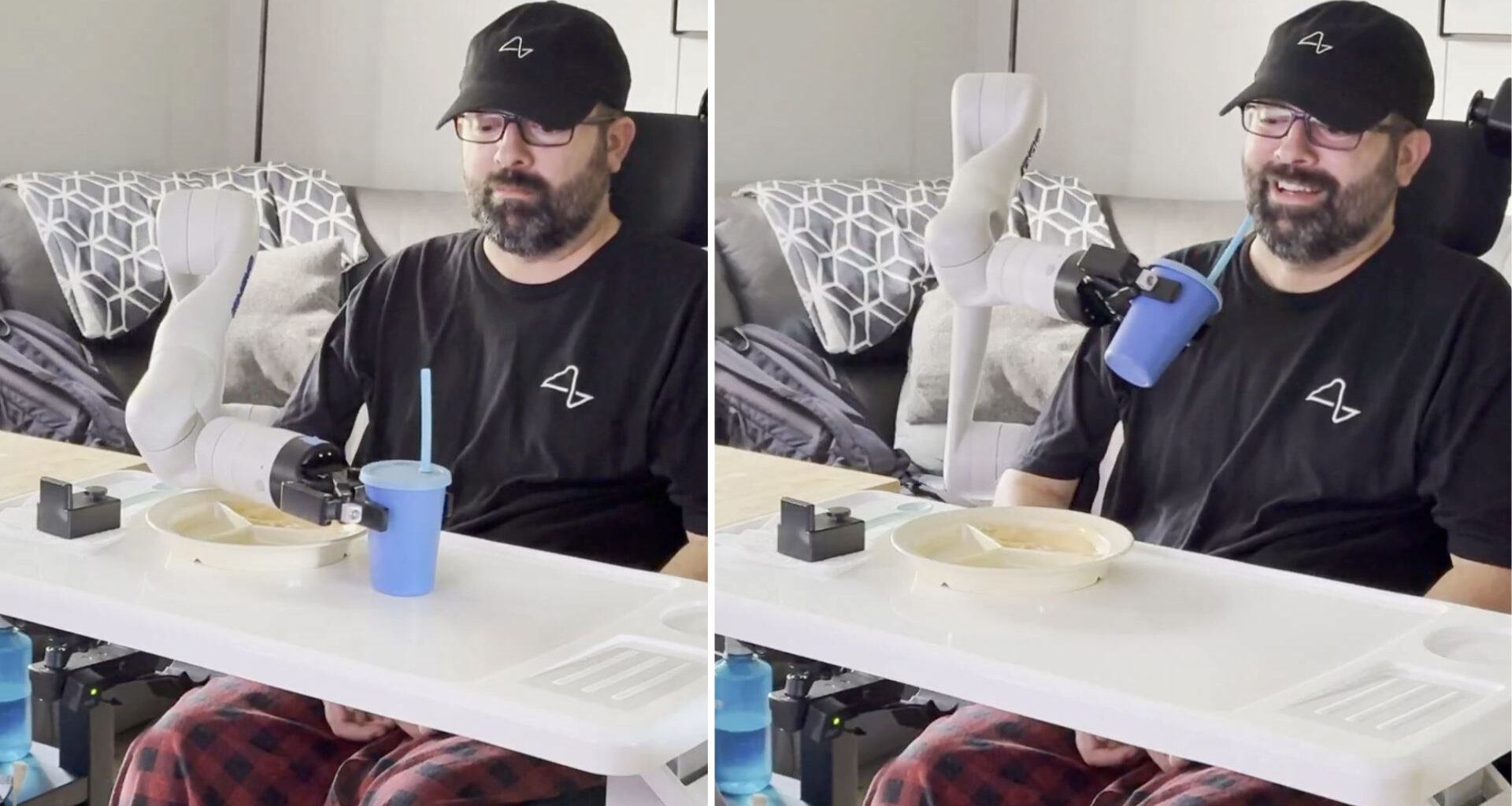Neuralink has claimed to have achieved a new milestone in brain-computer interface technology, with an amyotrophic lateral sclerosis (ALS) patient successfully controlling a robotic arm using only his thoughts.
In a recent demonstration shared online, Nick Wray used the arm to pick up a cup and drink from it, marking a significant step toward restoring autonomy for people with severe mobility impairments.
The breakthrough is part of Neuralink’s Food and Drug Administration (FDA) – approved “CONVOY” study, which tests how implanted brain chips enable patients to perform daily tasks independently. Wray is the eighth participant to receive the Neuralink implant.
In August, Elon Musk’s Neuralink expanded to the UK with a clinical study testing its brain chip to help paralyzed patients control devices through thought.
Mind controls machine
During three eight-hour sessions, ALS patient Nick Wray used Neuralink’s brain implant to operate a robotic arm for everyday activities.
The chip, implanted in his brain, translates neural signals into Bluetooth commands, allowing him to control external devices through thought alone. Using the system, Wray successfully performed tasks such as picking up a cup, putting on a hat, microwaving food, and opening a refrigerator, reports PC Magazine.
In one demonstration, the robotic arm lifted a cup to his mouth so he could take a drink. He also achieved record-breaking results on dexterity tests used for stroke patients, moving 39 cylinders across a table in five minutes and flipping five puzzle-like pegs in another.
Hi everyone! Sorry for the late update. I’ll try to get back to Sundays.
TL;DR: !!!!!
This was truly a week for the books. I can’t remember the last time I put in a solid 8 hour work day and last week I put in 3 in a row. It was one of the most incredible experiences of my life… pic.twitter.com/7jtU5qVEdo
— Nick Wray (@Telepath_8) October 6, 2025
Wray reportedly even completed what he called a “ridiculous trick shot,” expected to appear in a future video. In a separate trial, he managed to maneuver his wheelchair using the brain-computer interface for the first time, reports The Dallas Express.
Brain chip progress
Neuralink launched its first human trials in the US in 2024, but only after clearing a major hurdle with the U.S. Food and Drug Administration (FDA). The company had to resolve significant safety concerns that had caused the FDA to reject the bid back in 2022. Now, eight severely paralyzed individuals have received the experimental brain implant, enabling them to interact with digital devices using only their thoughts.
Among these initial participants was Noland Arbaugh, an Arizona man who became the first to get the Neuralink chip. He quickly showcased the implant’s amazing ability to restore digital independence, demonstrating that he could control a cursor and play video games just by thinking.
However, Arbaugh’s device later suffered a major technical failure: nearly 85 percent of its fine threads detached from his brain tissue. Rather than recalling the device, Neuralink rapidly deployed a software solution. The company successfully maintained the implant’s effectiveness by updating its algorithms to sharpen signal interpretation.
The implanted device, known as the N1 chip, is roughly the size of a 10-pence coin. It operates through 128 ultra-fine threads—each thinner than a human hair—that connect about 1,000 electrodes directly to the brain’s surface. These electrodes detect and transmit neural activity, translating brain signals into precise digital commands, such as cursor movements, typing, or controlling external devices.

